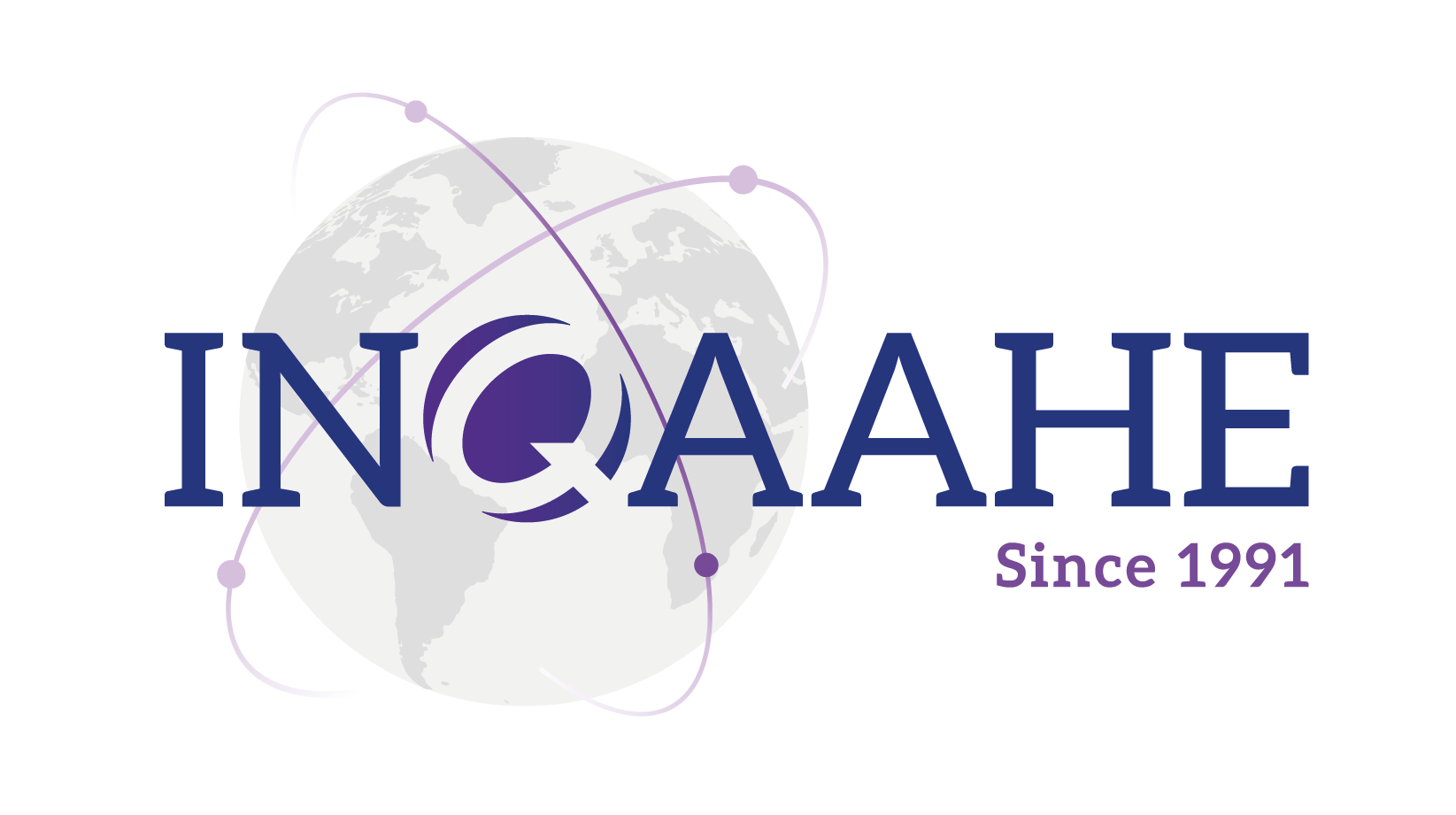INQAAHE Forum 2022
Sustainable Quality Assurance: Optimizing Synergies between Artificial and Human Intelligence
June 7, 2022 at 13:30 Mexico City time
Summary:
AI or Artificial Intelligence is already in wide use in daily life. Smartphones have contributed to furthering AI services through a variety of Apps, for example, for the search function or face or voice recognition. The World Economic Forum, an international network, has consistently advocated for AI in businesses through its construct called the "Fourth Industrial Revolution" without perhaps offering a balance of gains and losses in outcomes for societies.
Can AI in education lead to a generally positive outcome and impact? This question is relevant because the extensive lockdowns due to the Covid-19 pandemic have compelled leaders in education and training to accept the utility of technology-enabled learning as an integral part of the paradigm. The lockdowns have led to learning losses that may impact governments' capacities to achieve SDG4 in the next eight years. In this context, can AI-based services offer support and help attain the goal on schedule?
Applications in AI in education have been around for a long time, some receiving notice as early as the 1980s. A wide range of applications has been described in research and commercial literature. Better known ones in recent times are Intelligent Tutor Systems (ITS) and AI-powered Teaching Assistants. Investment in ITS has resulted in over fifty systems being available commercially. Also well known are AI services in language training. The use of AI in remote proctoring of examinations in lockdowns was reported during the last two years. While AI has been deployed in learning analytics on a pilot scale, there are a few not-so-well-known efforts in using AI to promote exploratory learning and collaborative learning. Many AI applications in education are still in the laboratory stage. A sizeable proportion among them is student-facing applications. A smaller number are system-centred such as for the improvement of learning delivery. Very few are teacher-centred.
Just as the WEF has provided a global framework for AI in business, the Beijing Consensus on AI in Education (2019) can be thought to provide a global framework for AI in education. The consensus is that ethics of AI, equity and inclusion should be the core and priority considerations in planning for AI in education. The teacher should be the principal stakeholder. Data protection and privacy issues need to be addressed while recognising the importance of offering viable opportunities for large groups for opting out of data sets. The increasing interest of governments in data sovereignty should be considered as well. The larger issues of uncorrected algorithmic biases and the potential for ignoring a critical paradigm in education such as constructivism cannot be ignored while developing AI applications for education, training, and lifelong learning.
In this talk, we will provide an overview of significant developments as well as issues and concerns on AI in education in the context of progress towards achieving SDG4. We will also touch upon efforts underway in COL on AI with the teacher as a stakeholder where AI can assist rather than replace the teacher.
Bibliography
UNESCO (2019): Beijing Consensus on Artificial Intelligence in Education
Facilitated by:
 Balaji Venkataraman
Balaji Venkataraman
Vice President of the Commonwealth of Learning (COL), Vancouver, Canada. BALAJI is a specialist in applications of technology to formal as well as informal learning. He has been with COL for over eleven years and has held leadership positions in international development organisations for over two decades. His current interest is in application of AI in education with a focus on teachers. He completed his masters and doctoral degrees in India and is a citizen of India.
INQAAHE Forum 2022 is sponsored by uPlanner (silver category), SUMADI (silver category) and Santander (gold category).




